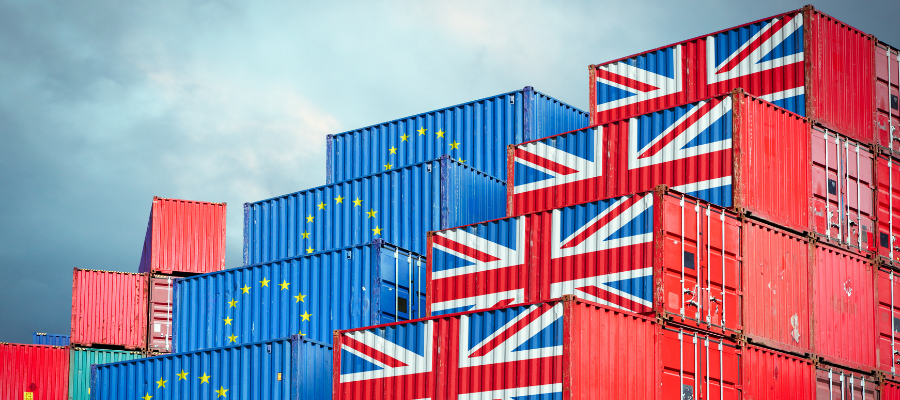🕒 Article read time: 2 minutes
Ratification of Withdrawal Agreement will protect trade with the EU, says Logistics UK

Logistics UK welcomed the announcement yesterday (28 April 2021) that the European Parliament has accepted the terms of the Trade and Customs Agreement (TCA), announced on 24 December 2020.
The ratification will give certainty to businesses on both sides of the Channel, according to Sarah Laouadi, European Policy Manager at Logistics UK. It will also enable industry, UK and EU authorities to take part in the agreement’s cooperation bodies to focus on effective implementation of the deal and keep goods and services flowing freely across the UK’s borders.
“The ratification of the TCA is great news for businesses across the UK’s highly interconnected supply chain,” Laouadi said, “and will provide them with greater certainty about how and when goods can move across the UK’s borders. However, there are still gaps in the agreement, for instance for touring companies that will need to support their customers in the cultural sector when the concert and event season re-starts but will be prevented from touring freely in Europe under the current terms of the agreement. It is crucial not to let down this sector, which makes the UK a vibrant cultural hub, supplies events across the continent and provides thousands of jobs, directly and indirectly. Logistics UK is urging government to continue to strive for an agreed solution that meets the needs of this sector. In addition to our regular participation in working groups of the Department for Culture, we have pressed this point with the Business Secretary and took part in a technical meeting with DfT yesterday (28 April 2021) to discuss pros and cons of potential changes in domestic legislation in this area.
“Despite the ratification of a long-term framework for the trading relationship with the EU, it is also important to remember that there are still changes to come in import conditions: the UK is yet to introduce checks and other requirements on inbound goods, which are expected to be phased in gradually over the next year. Business and government must ensure that all necessary preparations have been made in a timely fashion, to protect the supply chain and prevent unnecessary or avoidable delays at the border or at destination.”
The UK currently does not make checks on goods arriving in the UK but the situation at the border will change from 1 October 2021, when requirements on products of animal origin and other high risk foods will be implemented. The option to defer the submission of the full customs declaration up to six months from the point if import will be phased out on 1 January 2022. Safety and Security Declarations for imports, as well as physical checks on products of animal origin (also known as Sanitary and Phytosanitary checks, or SPS) will be required from 1 January 2022.
“Our advice to members which import goods from the EU is to familiarise themselves with what will be required in plenty of time,” Laouadi continued, “and review their contracts, Incoterms and processes with suppliers and partners on the other side of the Channel. All the preparations that have been made for GB to EU trade ahead of 1 January, in terms of customs formalities, safety and security declarations and sanitary and phytosanitary documentation for animals and agrifood products must now be replicated for EU to GB trade. This will ensure the continued smooth movement of goods across the UK’s borders, and protect the nation’s trading relationships.”
*www.logistics.org.uk/brexit
Published On: 29/04/2021 17:00:16

Comments Section
If you are a Logistics UK member login to add comments.